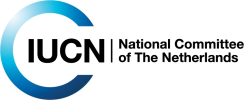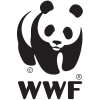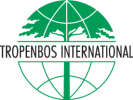Stanley Walet, Monitoring and Evaluation Advisor for Mobilising More for Climate (MoMo4C) travelled to Cameroon to see how impact monitoring operates on the ground. He noted several challenges and offers some recommendations.
Header photo: Ngoyla cocoa, Cameroon © WWF
Under the MoMo4C program, the first business contest in Cameroon is focussing on climate resilient cocoa production that have little or no impact on the forest, protects wildlife and procure benefits for indigenous and local communities in the Southeast of Cameroon. Going by the 12 projects submitted, local actors expressed the desire to regenerate ageing farms, create plant nurseries, reconvert existing farms for cocoa production, produce high quality cocoa and build relationship with long term credible financial partners.
After launching the first call for business proposals WWF is pleased to announce a major milestone in the progress of the Mobilising More for Climate program (MoMo4C) in Cameroon.
After nearly two years of restrictions, WWF Netherlands' MoMo4C team was finally able to visit Cameroon and see the five projects that we are helping to become investment-ready. Shephard Andrew Zonde, MoMo4C programme manager, shares his thoughts on the trip.
Header photo: Cocoa plants and farms, Cameroon - MoMo4C © WWF
Over one hundred local businesses have responded to the local call for proposals for Mobilising More for Climate (MoMo4C) from Ngoyla and Yokadouma councils in Cameroon. How can these entrepreneurs help preserve biodiversity and nature in their home country? Roberty Essama, WWF Cameroon, tells us about the priority themes for impact entrepreneurs.
Spread over three countries – Cameroon, the Republic of Congo and Gabon – the Tri-National Dja-Odzala-Minkébé (TRIDOM) transborder forest covers 178,000 km², or 10% of the Congo Basin rainforest. It contains large numbers of elephants, chimpanzees and gorillas, as well as numerous other species and habitats. The area, of which 97 percent is covered in forest, is an important and productive carbon sink.
The forests of TRIDOM are increasingly lost due to slash-and-burn agriculture, unsustainable logging, an expanding agroindustry and large-scale mining. Forest destruction will lead to immense CO2 emissions. “The Lungs of Africa” will be lost, and with it, its function in regulating the continent’s climate. Climate change exacerbates the already severe threats to the area’s biodiversity.
Integrated Landscape Approach
These threats to this precious forest can only be addressed in an integrated landscape approach that confronts all the different problems facing the region’s conservation.
MoMo4C Action In TRIDOM Landscape
WWF Cameroon leads the work in the TRIDOM landscape. Through multi-stakeholder engagement, the program supports the development of business cases in sustainable community forestry, non-timber forest product (NTFP) and cocoa production. In collaborating with local communities, special focus is given to the engagement of women and youth.
The engagement of vulnerable groups is generated from the stakeholder consultation process. These groups are consulted separately to avoid external influences, and their opinions are taken into account. An interpreter is called upon for a better understanding of the subjects developed. They sit in equal proportion and with equal voice at the level of the municipal multi-stakeholder platform. These groups are particularly encouraged to form stable associations capable of developing viable projects of which they are promoters. For all this they benefit from special support from MoMo4C.


